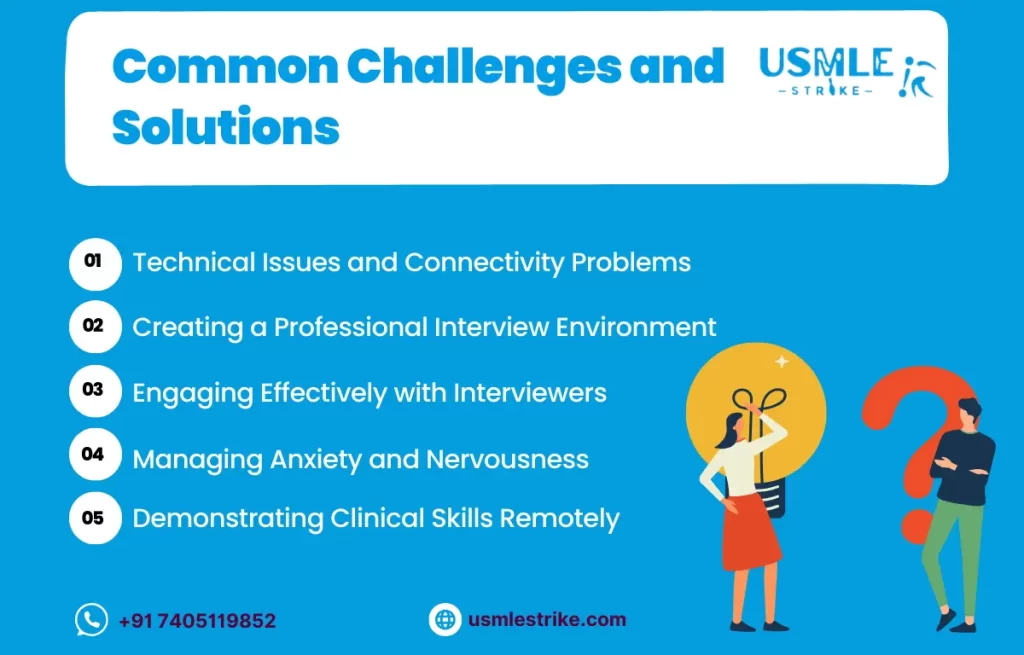Understanding the USMLE Step 3 format is essential for effective preparation. This exam tests your ability to apply medical knowledge in real-world scenarios, emphasizing clinical decision-making, patient management, and an understanding of the medical system. Unlike the previous steps, Step 3 is divided into two days, featuring multiple-choice questions and case simulations. By familiarizing yourself with the exam structure, including the number of questions and content coverage, you can develop a structured study plan and reduce anxiety on test day. This article will provide tips to help you succeed, with resources like USMLE Strike offering personalized study plans and expert guidance to boost your chances of success.
Step 3 Format
The USMLE Step 3 format consists of two days of testing, each with a different focus:
- Day 1: This day primarily consists of multiple-choice questions (MCQs) that assess your knowledge in clinical medicine, including internal medicine, surgery, pediatrics, psychiatry, and obstetrics and gynecology. You will have a total of 232 questions spread over six blocks, with each block containing 38-40 questions.
- Day 2: This day includes both MCQs and computer-based case simulations (CCS). The CCS portion tests your ability to manage patient cases and make clinical decisions based on the information provided. You will have a total of 180 MCQs and 13 CCS cases.
The USMLE Step 3 format is designed to evaluate not only your medical knowledge but also your clinical judgment and problem-solving skills. Each question is intended to mimic real-life clinical scenarios, ensuring that you are prepared for the challenges of medical practice.
How Many Questions Are There?
In total, the USMLE Step 3 consists of 412 questions divided across two days:
- Day 1: 232 MCQs divided into six blocks of approximately 38-40 questions each.
- Day 2: 180 MCQs and 13 CCS cases.
Each question is designed to assess your medical knowledge and decision-making skills. Make sure to practice with a variety of questions to familiarize yourself with the USMLE Step 3 format and question types.

Preparing for the USMLE Step 3
A comprehensive USMLE Step 3 exam guide is essential for navigating the format effectively. This guide outlines the exam structure, question types, and scoring system, providing you with the necessary insights to plan your preparation.
Using the exam guide helps you:
- Understand Scoring: Familiarize yourself with how the Step 3 score is calculated, which can range from 196 to 300. A passing score is typically around 196, but achieving higher scores is crucial for competitive residency positions.
- Identify Key Areas of Focus: The guide emphasizes high-yield topics and competencies that are vital for the exam, allowing you to concentrate your studies effectively.
By leveraging the USMLE Step 3 exam guide, you can develop a structured study plan that aligns with the exam’s requirements, increasing your chances of success.
Practicing with USMLE Step 3 Practice Questions
Regularly engaging with USMLE Step 3 practice questions is another essential component of your preparation strategy. These questions provide valuable practice in answering exam-style questions, helping you become accustomed to the format and time constraints. Benefits of utilizing practice questions include:
- Enhanced Understanding: Working through practice questions helps reinforce your knowledge and clarify areas where you may need further study.
- Test-Taking Strategies: Familiarity with the types of questions asked will enable you to develop effective test-taking strategies, reducing anxiety on exam day.
Incorporating practice questions into your study routine is vital for developing confidence and proficiency in the USMLE Step 3 format.
What Content is Covered in USMLE Step 3?
The content covered in the USMLE Step 3 includes:
- Internal Medicine: Diagnosis and management of common medical conditions.
- Surgery: Surgical principles and patient care.
- Pediatrics: Child health, development, and common pediatric diseases.
- Psychiatry: Mental health disorders and treatment options.
- Obstetrics and Gynecology: Women’s health, pregnancy, and childbirth.
Additionally, the exam tests your understanding of public health, epidemiology, and the healthcare system. Familiarizing yourself with this content will prepare you for the USMLE Step 3 format and increase your chances of passing.
Essential Tips for Success on Exam Day
To succeed in the USMLE Step 3 format, consider these helpful tips:
- Understand the Exam Structure: Familiarize yourself with the number of questions, the types of questions (MCQs and CCS), and the time allotted for each section. Knowing the format will help you manage your time effectively.
- Practice with Sample Questions: Use USMLE Step 3 practice questions to get a feel for the types of questions you’ll encounter.
- Simulate Exam Conditions: Take practice exams under timed conditions to build endurance and test-taking skills. This will help you get used to the pacing needed for the real exam.
- Focus on Clinical Scenarios: The exam emphasizes clinical decision-making. Review case studies and practice scenarios to prepare for the CCS component of the exam.
- Stay Calm on Exam Day: Arrive early, and bring all necessary materials. Stay relaxed and focused during the exam, and remember to read each question carefully.
These tips can significantly enhance your performance on exam day and help you feel confident about the USMLE Step 3 format.
What courses does USMLEStrike offer?
USMLE Strike offers a range of comprehensive courses designed to help medical students excel in their USMLE exams. These include tailored preparation programs for USMLE Step 1, Step 2 CK, and Step 3, each featuring expert-led lectures, interactive study materials, and personalized study plans. The courses also provide access to high-yield practice questions and simulated exams to familiarize students with the test format. Additionally, USMLE Strike offers guidance on test-taking strategies and stress management techniques to enhance performance. With a focus on individualized learning, USMLEStrike aims to equip students with the tools and confidence needed to succeed in their medical licensing journey.
Resources to Cover All USMLE Step 3 Content
Choosing the right resources is crucial to covering all USMLE Step 3 content and boosting your Step 3 score. Here are some top resources to consider, including USMLEStrike for personalized support:
- USMLEStrike
- Offers targeted coaching and structured study plans to guide you through all USMLE Step 3 content effectively.
- USMLEStrike’s practice sessions include real-time USMLE Step 3 practice questions and mock exams that reflect the USMLE Step 3 format, with personalized feedback to improve your Step 3 score.
- First Aid for the USMLE Step 3
- A comprehensive review book that provides structured content covering high-yield topics for both days of Step 3.
- Each chapter includes summaries of frequently tested content and clinical cases, making it an invaluable USMLE Step 3 Exam Guide for fast revisions.
- Case Files for Step 3
- Provides practical case scenarios to enhance clinical decision-making skills, particularly for Day 2’s Clinical Case Simulations (CCS).
- With case files that cover common medical scenarios, this resource aligns well with the USMLE Step 3 Exam Guide to prepare for complex patient management situations.
- OnlineMedEd
- Offers video lectures and study materials that break down complex topics in simple terms, making it easier to cover high-yield USMLE Step 3 content.
- Focused on helping you retain core concepts, OnlineMedEd’s structured approach can be an excellent complement to other practice resources.
How many times can I take the USMLE Step 3?
The USMLE Step 3 can be taken up to four times within a 12-month eligibility period, with a mandatory 60-day waiting period between attempts. A maximum of six lifetime attempts is allowed. Using resources like USMLE Strike, founded by Dr. Apurva Popat, a practicing doctor at Marshfield Clinic Health System in Wisconsin, USA, enhances your chances of success. Dr. Popat’s expertise and curated resources provide high-yield content and practice questions, crucial for acing the exam. Plan effectively, as repeated attempts may reflect negatively on your career. Trust USMLE Strike to boost your preparation and achieve your goals.
Conclusion
Understanding the USMLE Step 3 format is essential for effective preparation. Knowing the exam structure, the number of questions, and the content covered will help you develop a solid study plan. Utilize practice questions, focus on clinical scenarios, and implement effective test-taking strategies. By preparing thoroughly with resources from USMLE Strike, you can approach the exam with confidence and increase your chances of success. Good luck on your journey toward completing the USMLE!
Read also: USMLE Step 2 CK/3





